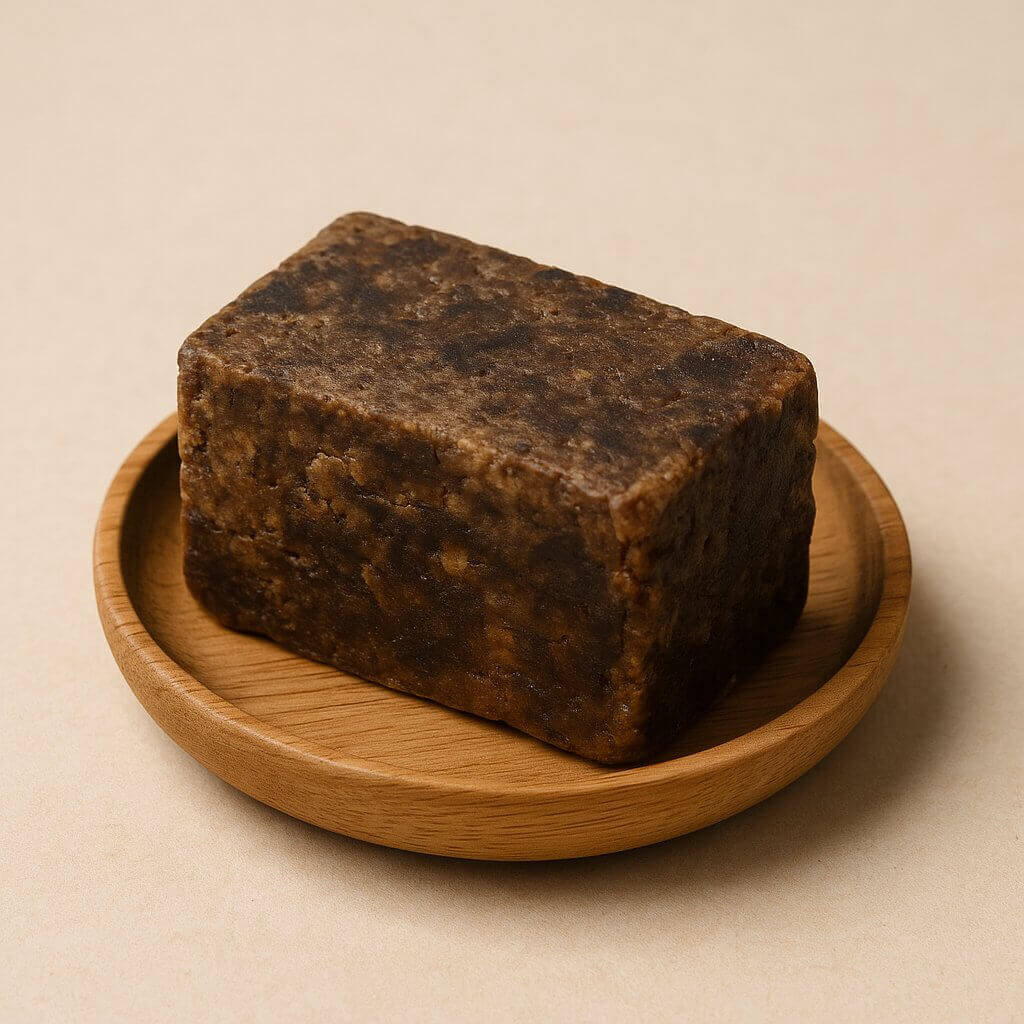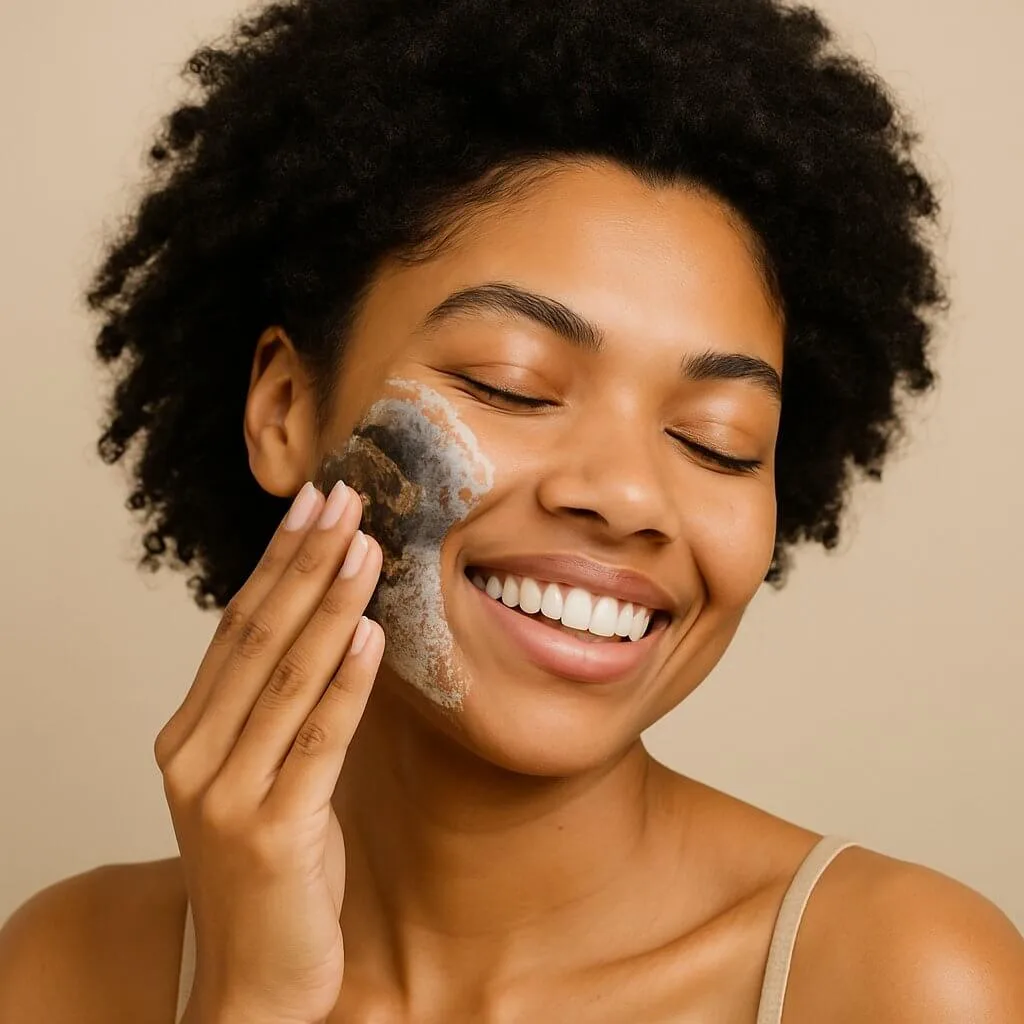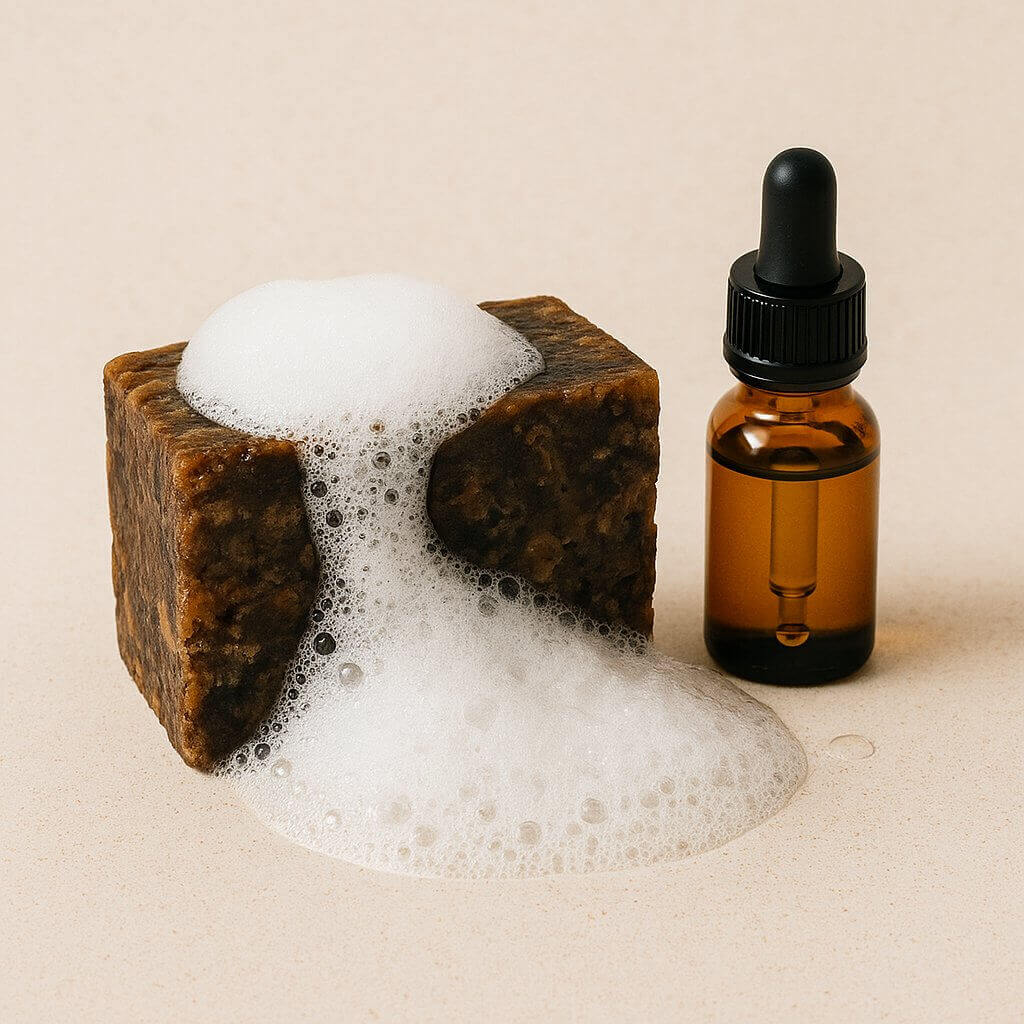In the world of natural skincare, few products have earned the trust of dermatologists and beauty enthusiasts alike as consistently as Raw African Black Soap. For centuries, communities in West Africa have relied on this time-honored remedy to address two of the most common skin struggles: acne and dryness. Unlike commercial cleansers that often target one issue at the expense of the other—drying out acne-prone skin or clogging pores on dry skin—Raw African Black Soap balances efficacy and gentleness, making it a rare dual-action solution.
What sets it apart is its unprocessed, nutrient-dense formula. While regular black soap may undergo refining that strips away key compounds, the raw version retains all its natural oils, enzymes, and antioxidants. This purity allows it to cleanse deeply without disrupting the skin’s barrier, making it ideal for both oily, acne-prone complexions and parched, flaky skin. As more people seek clean, multi-tasking skincare, Raw African Black Soap has surged in popularity, proving that nature’s solutions often outperform synthetic alternatives. Its rise in global markets is a testament to its versatility, with users from diverse backgrounds praising its ability to adapt to varying climate conditions and skin types.
Discover why Black Soap is ideal for acne and dry skin care

What Is Raw African Black Soap?
Raw African Black Soap—often called “ose dudu” in Yoruba or “savon noir africain brut” in French—is a traditional cleanser crafted from a handful of natural ingredients, with no added chemicals, fragrances, or preservatives. Its origins trace back to countries like Ghana, Nigeria, and Senegal, where it has been made for generations using a labor-intensive, small-batch process. Passed down through families, the recipe is often a closely guarded secret, with each community adding subtle variations to suit local ingredients and skin needs.
The key distinction between Raw African Black Soap and regular black soap lies in processing. Raw varieties are minimally refined: after cooking, the soap is left unbleached, unperfumed, and unaltered, preserving its natural color (a deep, earthy brown) and nutrient profile. The texture is typically firm yet slightly malleable, with a rough surface that speaks to its unprocessed nature. In contrast, commercial black soaps may be stripped of oils, mixed with detergents like sodium lauryl sulfate, or dyed to meet mass-market standards—changes that dilute their effectiveness and introduce potential irritants.
The core ingredients of Raw African Black Soap include:
- Plantain skins: Rich in vitamins A and C, which exfoliate gently by breaking down dead skin cells and boost collagen production to improve skin elasticity.
- Cocoa pods: Provide antioxidants like catechins and flavonoids that fight free radicals, reducing oxidative stress and soothing inflammation caused by acne or dryness.
- Shea butter: A deeply moisturizing fat extracted from the nuts of the shea tree, packed with stearic and oleic acids that nourish dry skin and repair the skin barrier, preventing moisture loss.
- Palm kernel oil: Contains lauric acid, a medium-chain fatty acid with strong antibacterial properties that target Propionibacterium acnes, the bacteria responsible for inflaming acne lesions.
- Water and potash: Natural alkalis derived from burned plant ashes, which saponify the oils (convert them into soap) through a chemical reaction, creating a mild cleansing agent that doesn’t disrupt the skin’s pH balance.
This simple, plant-based blend is why terms like african raw black soap, black soap raw, and native black soap are often used interchangeably to describe its purity. Each ingredient works in harmony, ensuring the soap cleanses without compromise—whether your skin is oily, dry, or somewhere in between. The absence of synthetic additives means it’s less likely to cause allergic reactions, making it a safe choice for even the most discerning users.
raw black soap is also distinguished by its production timeline. Traditional makers allow the soap to cure for several weeks after cooking, a step that hardens the bar and enhances its lathering properties. This slow curing process ensures that the ingredients fully integrate, resulting in a soap that’s both effective and long-lasting. In contrast, commercial soaps are often rushed through production, sacrificing quality for quantity.
Raw African Black Soap Benefits for Acne and Dry Skin
Raw African Black Soap is a powerhouse for dual concerns like acne and dryness, thanks to its unique ability to address root causes rather than just symptoms. Its multi-functional properties make it a standout in the skincare world, where most products focus on a single issue. Here’s a detailed breakdown of how it benefits both:
For acne-prone skin, its antibacterial properties—from lauric acid in palm kernel oil—are a game-changer. Unlike harsh benzoyl peroxide, which can dry and irritate the skin, leading to peeling and increased sensitivity, lauric acid targets Propionibacterium acnes without disrupting the skin’s natural barrier. This means it kills the bacteria that cause pimples while leaving the skin’s protective layer intact. Additionally, the natural enzymes from plantain skins work to dissolve excess oil and debris that clog pores, preventing new breakouts from forming. Users often report fewer cystic pimples, which are deep, painful, and hard to treat, and faster healing of existing ones, as the soap reduces inflammation and redness.
For dry skin, the soap’s shea butter and unrefined oils deliver intense hydration that lasts. Shea butter, in particular, is renowned for its ability to penetrate deeply into the skin, providing long-term moisture rather than just a temporary superficial layer. It forms a protective film over the skin, locking in hydration and shielding it from environmental aggressors like cold weather or harsh winds that exacerbate dryness. Unlike moisturizing cleansers that leave a heavy, greasy residue (which can clog pores and worsen acne), Raw African Black Soap absorbs quickly, leaving skin soft but not slick—a boon for those with dry, acne-prone skin, a tricky combination often neglected by commercial products that either dry out the skin or trigger breakouts.
These benefits align with raw african black soap benefits and raw black soap benefits cited by users: reduced redness, balanced oil production, and a noticeable improvement in skin texture. One reviewer notes, “I have dry cheeks and an oily T-zone—Raw African Black Soap keeps both in check. My acne has cleared, and my cheeks feel soft, not tight. It’s a miracle!” Another user with eczema and occasional breakouts adds, “It soothes the itchiness from dryness and stops pimples before they form. I wish I’d found it sooner.”
What makes these benefits even more impressive is that they’re achieved without the use of synthetic actives, making the soap suitable for long-term use. Unlike some acne treatments that lose effectiveness over time as the skin builds tolerance, Raw African Black Soap continues to work because its natural ingredients interact with the skin in a way that supports its overall health, rather than just suppressing symptoms.
The ultimate benefits of using Black Soap for your skincare routine
Why Raw African Black Soap Is Perfect for Sensitive Skin
Sensitive skin—characterized by redness, itching, burning, or stinging in response to skincare products—thrives with Raw African Black Soap. Its gentle formulation and natural ingredients make it one of the few cleansers that can address both acne and dryness without causing irritation, a common struggle for those with sensitive complexions.
A key factor in its suitability for sensitive skin is its pH level. While commercial soaps often have a high pH (around 9-10), which is alkaline and can disrupt the skin’s natural acid mantle (a protective layer with a pH of 4.5-5.5), Raw African Black Soap has a pH closer to neutral (around 7-8). This means it cleanses without stripping away the acid mantle, which is crucial for keeping harmful bacteria out and moisture in. A compromised acid mantle is a common cause of sensitivity, dryness, and acne, so maintaining its integrity is essential.
The soap’s anti-inflammatory compounds further enhance its suitability for sensitive skin. Cocoa pod antioxidants reduce redness and swelling, while shea butter soothes and calms irritated areas. This makes it effective for conditions like rosacea, where the skin is prone to flushing and inflammation, and eczema, where dry, itchy patches are common. A 2021 study on Healthline notes that plant-based ingredients in raw black soap “reduce transepidermal water loss (TEWL) and soothe irritation, making them suitable for eczema-prone or reactive skin.” TEWL measures how much moisture escapes from the skin, and lower TEWL indicates a healthier, more hydrated barrier.
Dermatologists often recommend Raw African Black Soap to patients with sensitive skin who also struggle with acne. Dr. Lisa Chen, a board-certified dermatologist with a focus on natural skincare, explains: “Many acne treatments irritate sensitive skin, creating a cycle of breakouts and dryness. But Raw African Black Soap cleanses without stripping. Its natural oils nourish while its antibacterial properties target breakouts—no trade-offs. I’ve seen it transform the skin of patients who thought they’d never find a product that works for them.”
Another reason it’s perfect for sensitive skin is its minimal ingredient list. With no added fragrances, dyes, or preservatives—common irritants in skincare products—there’s less chance of triggering an allergic reaction. This simplicity is a breath of fresh air for those who have to scrutinize every label for potential allergens.
Whether your sensitivity is caused by genetics, environmental factors, or overuse of harsh products, Raw African Black Soap offers a gentle, effective alternative that supports the skin’s natural healing process. It’s a reminder that sometimes, less is more when it comes to skincare.
How Black Soap helps combat breakouts and dryness naturally

How to Use Raw African Black Soap Effectively
To maximize the benefits of Raw African Black Soap, it’s important to use it correctly, as improper application can reduce its effectiveness or cause unnecessary dryness. Follow these detailed steps to incorporate it into your skincare routine:
- Prep your skin: Start by wetting your face or body with lukewarm water. Avoid hot water, as it can strip the skin of its natural oils and exacerbate dryness, especially for those with sensitive or dry skin. Lukewarm water opens the pores slightly, allowing the soap to penetrate deeply and cleanse effectively without causing irritation.
- Lather gently: Take a small piece of Raw African Black Soap—about the size of a cherry for the face, or a walnut for the body—and rub it between your palms. Add a few drops of water to help create a soft, creamy lather. The lather may not be as frothy as commercial soaps, which is normal, as it doesn’t contain synthetic foaming agents. For a more controlled application, you can also lather the soap on a washcloth or loofah, then apply it to the skin.
- Massage: Apply the lather to your skin using gentle, circular motions. For acne-prone areas like the chin, forehead, or back, spend a few extra seconds massaging to ensure the antibacterial ingredients reach deep into the pores. For dry patches like elbows, knees, or cheeks, focus on moisturizing by pressing the lather into the skin rather than scrubbing. Be gentle—avoid harsh rubbing, as this can irritate the skin and worsen redness or acne inflammation.
- Rinse thoroughly: Wash away all lather with lukewarm water. Take your time with this step, as any residue left on the skin can cause tightness or dryness, especially for those with dry or sensitive skin. Pat your skin dry with a soft, clean towel—avoid rubbing, which can cause friction and irritation.
- Moisturize immediately: While your skin is still slightly damp (within 60 seconds of rinsing), apply a hydrating moisturizer. This locks in the moisture from the soap and the water, maximizing hydration. For acne-prone skin, opt for oil-free, non-comedogenic gels or lotions containing ingredients like hyaluronic acid or niacinamide, which hydrate without clogging pores. For dry skin, use richer creams with shea butter, ceramides, or glycerin, which provide long-lasting moisture.
Frequency tips:
- Oily/acne-prone skin: Use daily (morning and night) to control oil production and prevent breakouts. The soap’s gentle formula won’t over-dry, but always follow with moisturizer to maintain balance.
- Dry/sensitive skin: Use 3-4 times weekly to avoid over-cleansing, which can strip the skin and increase dryness. On non-soap days, use a mild, hydrating cleanser to keep the skin clean without irritation.
Common mistakes to avoid:
- Using too much soap, which can lead to over-cleansing and dryness. A little goes a long way, so stick to the recommended amounts.
- Skipping moisturizer, which negates the soap’s hydrating benefits. Even oily skin needs moisture to maintain its barrier function.
- Storing the soap in water or a non-draining dish, which causes it to melt and lose its shape. Instead, use a soap dish with drainage holes to keep it dry between uses, extending its lifespan.
- Using it on broken or extremely irritated skin, as the natural alkalis may cause a slight stinging sensation. Wait until the skin has healed before resuming use.
For those new to african black soap raw, it’s also helpful to note that the soap may darken slightly over time—this is a natural result of oxidation and doesn’t affect its efficacy. Additionally, pairing it with a toner containing witch hazel (for acne-prone skin) or rose water (for dry skin) can enhance its benefits by restoring pH balance and adding an extra layer of hydration.
Real User Reviews and Dermatologist Insights
Users with acne and dry skin consistently praise Raw African Black Soap for its transformative effects, with many noting that it’s the first product that has addressed both concerns simultaneously. Here’s a deeper look at their experiences:
- “I’ve battled cystic acne on my jawline and dry, flaky cheeks for years. I tried prescription acne creams that left my skin peeling and painful, and moisturizers that made my acne worse. Then I found Raw African Black Soap. After two weeks, my cystic pimples started to shrink, and my cheeks felt soft instead of tight. Now, three months later, my skin is clear, and I no longer have to choose between treating acne and hydrating my skin. It’s truly life-changing.” — Maria, 28, who has combination skin.
- “As a guy with back acne and dry elbows, I was skeptical that a single product could fix both. I’d tried body washes that cleared my bacne but left my elbows rough, and moisturizers that helped my elbows but made my back break out more. Raw African Black Soap was different. After a month of using it in the shower, my back acne was gone, and my elbows were smooth. I even started using it on my face—it’s gentle enough for daily use and keeps my skin balanced.” — Kwame, 31, with oily back skin and dry body skin.
- “Sensitive skin + acne = a nightmare combination. I’d try a new cleanser, break out in red, itchy bumps, and have to stop using it. A friend recommended Raw African Black Soap, and I was hesitant, but I’m so glad I tried it. It doesn’t irritate my skin at all, and my pimples have cleared up. I love that it’s made with just plants—no weird chemicals I can’t pronounce. It’s become a staple in my routine.” — Priya, 25, with sensitive, acne-prone skin.
- “I’ve been using 100 raw african black soap for six months, and the difference is incredible. My T-zone used to be so oily by noon, and my cheeks were always tight. Now my skin stays balanced all day, and my acne scars are fading. I can’t believe I waited so long to try it!” — Jamal, 34, with combination skin.
Dermatologists echo these positive reviews, highlighting the soap’s unique benefits for dual skin concerns. Dr. Michael Reed, a board-certified dermatologist with over 15 years of experience, notes: “Raw African Black Soap is a standout for patients with combination skin. Its antibacterial properties target acne-causing bacteria, while shea butter and other natural oils hydrate dry areas—all without the irritation of synthetic ingredients like sulfates or parabens. I often recommend it to patients who haven’t had success with traditional acne treatments because of dryness or sensitivity.”
A WebMD article supports these claims, citing a 2018 study published in the Journal of Cosmetic Dermatology that found raw black soap significantly reduced acne lesions in 80% of participants after 8 weeks of use, with no reported irritation. The study also noted improved skin hydration levels in participants with dry skin, thanks to the soap’s moisturizing ingredients. Another study, published in Medical News Today, found that the antioxidants in raw black soap helped reduce inflammation and improve skin barrier function, making it effective for both acne and dryness.
These insights from users and professionals alike reinforce why Raw African Black Soap has become a trusted solution for those struggling with acne and dry skin. Its ability to deliver results without compromise is a testament to the power of natural ingredients.
Learn why more people trust Black Soap for clear, hydrated skin

Comparing Raw African Black Soap With Other Cleansers
When pitted against commercial acne or dry skin cleansers, Raw African Black Soap emerges as a superior choice for several key reasons, especially for those with dual concerns. Here’s a detailed comparison:
- vs. Benzoyl peroxide washes: Benzoyl peroxide is a common acne-fighting ingredient that kills bacteria, but it often comes with side effects like dryness, peeling, and increased sun sensitivity. It works by oxidizing the skin, which can disrupt the skin barrier and worsen dryness. Raw African Black Soap,